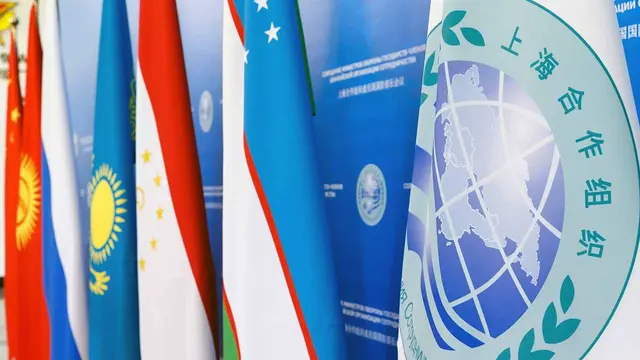*Author: Prof. Engr. Zamir Ahmed Awan, Founding Chair GSRRA, Sinologist (ex-Diplomat), Editor, Analyst, and Non-Resident Fellow of CCG (Center for China and Globalization). (E-mail: [email protected]). *
Introduction
The recent SCO (Shanghai Cooperation Organization) Foreign Ministers meeting held in India garnered both praise and criticism from various quarters. While the gathering aimed to foster regional cooperation and address pressing issues, there were critics who pointed out shortcomings, negative aspects, and concerns regarding India's relationships with China and Pakistan. This note will highlight some of the criticisms leveled against the SCO meeting in India.
Lack of substantial outcomes
One common criticism was the perceived lack of significant outcomes or tangible agreements resulting from the SCO meeting. Critics argued that the meeting failed to produce substantial breakthroughs or address key regional challenges effectively. The absence of concrete actions or clear resolutions was seen as a missed opportunity to advance cooperation within the SCO framework.
India-China tensions overshadowing cooperation
India's strained relations with China and their ongoing border disputes were viewed as casting a shadow over the SCO meeting. Critics argued that the deep-rooted mistrust and unresolved territorial issues between the two countries hindered the potential for meaningful collaboration within the organization. This overshadowing of cooperation by bilateral conflicts was seen as a negative aspect of the SCO gathering.
Earlier, Rajnath Singh, the defense minister of India embarrassed by avoiding a handshake with his Chinese counterpart, Defense Minister General Li Shang Fu, at the bilateral meeting held on 28 April in India, whereas, he had shaken hands with other defense Ministers from Tajikistan, Iran, and Kazakhstan.
India-Pakistan rivalry
The rivalry and disputes between India and Pakistan are rooted in a complex historical, political, and cultural context. The main points of contention between the two countries include the issue of Kashmir, which has been a longstanding territorial dispute, as well as conflicts over water resources, terrorism, and border disputes.
Pakistan has been the victim of Indian state-sponsored terrorism and has been complaining frequently. Even it has provided a dossier to the UN with solid evidence of the Indian state’s involvement in terrorist acts in Pakistan.
Pakistan has been seeking the implementation of a UN resolution regarding Kashmir, which India has been denying for seven decades.
India-Russia Currency Deal
India was buying cheaper oil from Russia in Indian rupees and was exporting to Europe at a much higher price. During this visit, Russia suspended accepting Indian rupees for any bilateral trade.
Limited focus on economic cooperation
Another criticism was the limited emphasis on economic cooperation during the SCO meeting. Critics argued that economic collaboration, trade facilitation, and infrastructure development were essential aspects that should have received more attention. The lack of substantial progress in these areas was viewed as a missed opportunity to enhance regional connectivity and mutual prosperity.
Insufficient engagement with non-member states
Critics contended that the SCO meeting could have been more inclusive by engaging with non-member states in the region. The failure to actively involve neighboring countries that have a stake in regional stability and security was seen as a shortcoming. Critics believed that a broader approach would have allowed for a more comprehensive discussion and potential solutions to regional challenges.
This meeting has missed the opportunity for the expansion of SCO. Whereas, there was huge potential to expand SCO and many countries were eagerly perusing to join SCO at an early date.
Conclusion
Studying the aims and objectives of establishing SCO, one can conclude that under India's presidency, nothing was achieved. Was it deliberately? Need to examine this seriously.
While the recent SCO meeting in India aimed to promote regional cooperation, it faced several criticisms from various perspectives. Critics highlighted the lack of substantial outcomes, concerns over India's tensions with China and Pakistan, limited focus on economic cooperation, and insufficient engagement with non-member states. Addressing these concerns and working towards overcoming bilateral disputes will be crucial in ensuring the effectiveness and success of future SCO meetings.
As a matter of fact, India failed to host the SCO meeting in an effective manner. During the rotational presidency of India, SCO suffered setbacks. It failed to settle disputes with its immediate neighbors and build confidence. The lack of diplomatic etiquette and norms turned the SCO into a useless meeting. Instead of bringing the member states closer, the differences were further enhanced and hate was promoted. It was Indian narrow-mindedness and lack of sincerity.
The root cause was that India is visibly tilted toward the US and the West. Its interests coincide with theirs. India is a Major Defense partner with the US, a Strategic Partner with the West, and a member of the “Quad” with the US, UK, Australia, and Japan. All these countries are rivals to China and Russia, the major player in the SCO. Divergence of interests, and lack of sincerity, its presence in SCO is a big question mark. All the member states are urged to re-evaluate the Indian membership in SCO, it might be there only for spying purposes.
India has turned the South Asian Association for Regional Cooperation (SAARC) into a dysfunctional organization, and may also want to turn SCO ineffective in the same manner. It is time to evaluate if India should be kept in SCO or removed.
(ASIA PACIFIC DAILY)
 简体中文
简体中文

